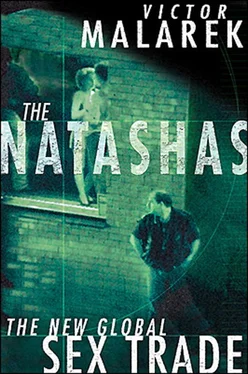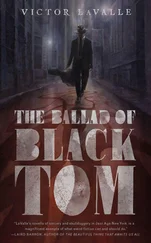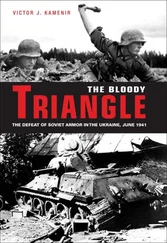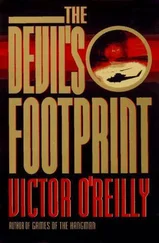“We found ten women—including four at the Playboy Club from the previous week when we were there. At the Mega
Bar there was one room set up as a barracks with bunk beds around the walls where the women slept until needed for sex. No sign of Svetlana yet. Can’t really say any more now.”
Two weeks later, Chappell emailed another update. “I cannot find any trace of Svetlana,” he began. Then he sent up a red flare.
I get the strong feeling that there is something strange going on here regarding the internal investigation. I was interviewed several times. The last time it was a very aggressive interview in which I felt like a suspect. As a cop I feel that they are trying to shift the focus of attention from the whole issue of the aborted raid and the matter of involvement in prostitution to the single issue of John and the gun.
On December 17, 2001, I phoned Chappell. He sounded as though he’d been through the rinse cycle. “The hassles we created needed to be created,” he said. “We shook things up, but having said that, the pressure is on to quiet things down. John is no longer with the prostitution unit. That is the only major accomplishment in this entire debacle. No one has been disciplined. No one has been sent home. And Svetlana is lost.”
Chappell also revealed that he had met privately with an American Internal Affairs officer. The conversation left him rattled. “He’s a pretty straight guy. He let it slip that ‘we found something a lot worse’ and then clammed up. I was told the Americans called off the raid because of a sudden request to provide protective services to local Serbs. That I know was an outright lie. When we got there, and you know that, the Ukrainian commander was with all his men waiting to move.”
I managed to reach Chappell by phone on January 25, 2002. He had more intelligence to share.
I had a very interesting conversation early this week with someone from the special investigative team. He’d had a couple of drinks and called me over for a private word. I talked to this guy for some time. He was very angry and very intense. He said a smokescreen was pulled down on the entire Internal Affairs investigation around the American K-Force and DynCorp. He said there was a lot of obstruction in the special investigation.
The Internal Affairs investigator said, based on what he’s been able to uncover, there was definite interference in Ferrazaj by the U.S. forces to keep the raids from going down. He felt there were Americans in those bars and that there was a lot more to this than just a few U.S. soldiers visiting brothels.
As for myself, I’ve been asking a lot of questions and getting absolutely no cooperation. I’ve spoken to the head of Internal Affairs and the deputy commissioner and they won’t say anything. I’ve asked around repeatedly about Svetlana, and since then it’s like the Iron Curtain has been pulled shut around this case. I don’t think we’ll ever find her again.
Chappell promised to follow up with a detailed email, which he did on February 28. He’d been digging in dark recesses and gathering intelligence from a various sources, and had emerged with a disquieting lesson in geopolitics.
The U.S. Army is very tight with the Albanians, in particular the former UCK [the Albanian acronym for the Kosovo Liberation Army] fighters and their successors. The U.S. Army controls the border areas where the UCK guerillas have been trying to start a civil war with Macedonia. Most of these UCK fighters have links to organized crime. Indeed, organized crime is one of the ways that they fund the purchase of weapons.
Chappell went on to suggest that certain criminal operations in the south of Kosovo conducted by UCK fighters were being protected by the Americans in exchange for intelligence and an agreement from Kosovar fighters not to start a war with Macedonia.
“It would not surprise me if the prostitution activity is included,” he wrote.
I didn’t hear a word from him for several months. Then, on June 14, 2002, I called to check up on him. The conversation was terse.
“Everything has really come to a dead end,” he said. “With the rotation almost all of the KFOR troops that were there last October are gone now. But the interesting thing is that the situation appears to be the same. So it doesn’t seem to be something unique to that particular brigade or unit. It’s almost as though that’s policy, no matter who is there.”
Chappell lamented that although he had tried his best to track down what he could, “there’s just nowhere else to go with it. That’s part of the problem when you try to do an inquiry— people rotate every six or seven or eight months.”
The trail had hit quicksand.
Sadly, Chappell said he’d learned that Svetlana had been resold to a brothel somewhere in Bosnia.
GORDON MOON, the Canadian police officer who set up the first Trafficking in Prostitution Investigation Unit in Kosovo, was upset when I recounted my experience in Ferrazaj. He said that while his unit conducted raids on brothels and bars throughout the renegade province, there was one area where the bars were basically hands off—Ferrazaj and Gnjilane in the American-controlled sector.
We felt that there were things going on there that were untoward. Now, what’s obvious to me is that they [the U.S. military command] didn’t want that particular crime [trafficking women into brothels] investigated because there were people there that were involved with it, that were probably receiving substantial payoffs to allow it to continue. That’s why we met a pretty stiff brick wall when we were trying to establish a unit in that region.
Moon said he had ventured into the region a number of times and was appalled at what he saw. “I mean, the bars just flourished everywhere and, let me put it this way, tons of Americans in them, which kind of surprised me because the international community was supposed to be there to aid and to help people, and in turn they were fueling this prostitution and trafficking problem.”
WHEN THE U.S. MILITARY effectively condones the soliciting of trafficked women overseas, it seriously undermines the efforts of the U.S. government in its anti-trafficking work. American soldiers, purportedly fighting for freedom throughout the world, are engaging in an offensive activity that represses innocent women and girls and aids criminals in making a profit. As long as this situation is allowed to continue, and as long as its citizens board planes on sex tours, the United States’ ranking should be downgraded to Tier Three—with all the international embarrassment and disgrace that comes with it.
CONCLUSION:
STOP THE TRAFFIC!
OVER THE PAST DECADE the sheer scale and brutality of the sex trafficking industry has unfolded with a vengeance on the world stage. Its scope has been of such massive proportions that putting the brakes on it seems an almost impossible task. There have been conferences—endless international confabs with well-meaning human rights workers highlighting the cesspools of debauchery in different parts of the world. Social workers gather to discuss, define and document the problem. Government leaders orate with indignation and vow to put an end to the scourge. Myriad studies and research projects examine the “causes” and “effects,” and enough reports have been written to fell several forests. Yet the problem persists— and has gotten infinitely worse.
An exasperated Gerard Stoudmann of the Organization for Security and Co-operation in Europe (OSCE) told delegates at
a conference in Vienna in April 2001 that European governments often provide “just lip service” on the issue and aren’t exerting enough muscle to stop it. “What is now needed,” he said, “are deeds, not words.”
Читать дальше












